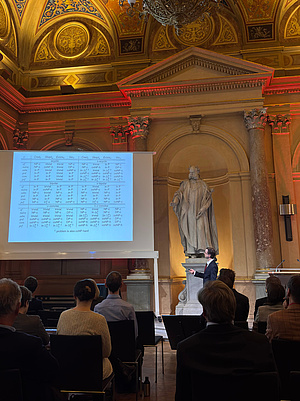Welcome to the group headed by Johannes (P.) Wallner, specializing on Knowledge Representation & Reasoning (KRR).
If you are interested in student topics (e.g., for a Bachelor's or Master's thesis) you can have look at the topics page. A Bachelor's or Master's thesis can be started anytime (contact).
Broadly construed, knowledge representation & reasoning in Artificial Intelligence is concerned with foundational research questions such as how to represent knowledge and how to reason based on knowledge. Our research and teaching focuses on
- formal studies of prominent logic-based representations of knowledge, and
- addressing challenging computational reasoning tasks arising in KRR.
Our research agenda is to further understanding of complex forms of reasoning in knowledge representation, and to bring promising approaches closer to application, by going from theory to practice.
One of our main current areas is computational argumentation. For a general introduction to the topic, you can have a look, e.g., at the Handbook of Formal Argumentation or this article.
** News **: we are organizing the next ICCMA in 2025.
** New course **: Logic-based Knowledge Representation (winter term).
Below you find recent news (news archive).

